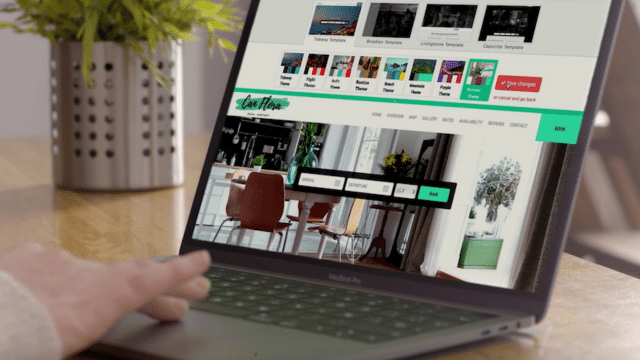While hundreds of thousands of owners list their home on sharing economy platforms like Airbnb and HomeAway each year, there’s no guaranteeing their commercial success or financial gains.
Owners increasingly face fierce competition head-on, that’s why they really need to be at the top of their game in order to succeed. We unpick the three must-haves every for every vacation rental business looking to make a decent profit and stay competitive in an industry now predicted to be worth $100 billion.
Assuming you already have your vacation rental property (or are at least in the process of completing), these are the three other non-negotiables which will help make your new business venture a success.
1. A strong vacation rental brand
The paint’s barely dry on your new vacation rental and you’re already eager to let guests in – not so fast! Before you begin accepting bookings, there is something very important you need to work on: your vacation rental brand.
Defining your brand from the very beginning will really help you establish the kind of image you want to build and project for your vacation rental. Everything from your company logo to your personalized business domain name will play a role in creating your brand identity, so take your time – you don’t have to make these decisions overnight.
Once you have a good idea of what your brand’s personality will be – whether that’s “friendly”, “familiar”, “cool”, “luxury”, “exclusive” or anything else – this will be communicated in everything you do as your brand’s voice. That means any copy on your website, emails you send or other marketing materials you produce will need to use the same styles and tones to keep a coherent image.
2. An optimized vacation rental website
Nowadays, having a vacation rental website is an absolute must for owners who are hoping to get their business off the ground. Not only are business websites the best channel for achieving direct rental bookings, they are also used as a way for owners to avoid the increasingly high commissions charged by online travel agencies.
It’s not simply a case of creating any website and waiting for the bookings to roll in, however. In order to ensure your website is optimized for this industry, there are many features it will need to have in order to stay competitive. Given most travel bookings are now made on handheld devices, your vacation rental website will need to be mobile friendly.
Additionally, you’ll need to have a visible availability calendar, clear call-to-action like “Book Now!”, plus a booking engine built into your site so potentials guests can reserve their room easily. Part of the web-building process will include carrying out search engine optimization (SEO) tasks, so your website is ready to be found by Google.
Apart from technical elements, you’ll also need space to showcase high-quality photographs of your property, room to write enticing descriptions, plus functionality for displaying those all-important guest reviews and testimonials.
3. A clear promotional strategy
In order to get your vacation rental seen by all those potential guests, you’ll need to have a structured promotional and distribution strategy in place.
When you’re writing your vacation rental business plan, you’ll have to think about the marketing tactics and methods you will use to gain visibility both on and offline. This includes considering who your buyer personas – or ideal guests – are so you can target these markets more specifically.
For new businesses who are just entering the vacation rental sphere, it’s a good idea to advertise on a diverse selection of listing sites in order to reach as wide an audience as possible. Presence on sites like Airbnb and HomeAway can be key in the early stages so you achieve the first bookings and reviews for your rental.
Besides listing sites, there are plenty of other ways to advertise your website (this should be your main focus, as it’s what is going to bring you big bucks!). For example, think about linking up with tourism boards to offer your accommodation in your local area. Or promote your home across social media sites such as Facebook, Instagram and Twitter. Finally, it’s worth considering investing some money in search engine marketing (SEM) like AdWords so that users searching for vacation rentals in your area find your property and website much more easily.
These are simply the top three things you’ll need in place to make your vacation rental business a success from day one. In reality, there is plenty more to learn as your business grows and develops.
Make sure you’re signed up to our newsletter so you always receive the latest tips, tricks, and industry know-how – direct to your inbox!





